WARRIOR - Women and religion in organized resistance
Funder: Irish Research Council (Laureate consolidator award)
Women in conflict - Conflict studies show that women are important contributors to conflict resolution and that their empowerment is crucial to conflict resolution efforts. Are these findings applicable to violent Muslim groups? The literature typically considers women in these groups as passive victims, subordinated to their husbands and male leaders in the name of a radical religious ideology. However, gender studies show that women often advance their independent, and potentially peacebuilding agendas by applying, rather than opposing Islamic principles.
Project goals - WARRIOR has four goals: 1- to show empirically whether women in Islamic contexts may contribute to conflict resolution, 2- to identify channels through which they may advance conflict resolution processes, 3- to show women empowerment in Islamic settings so far associated with female subordination, 4- to show the role of everyday Islamic beliefs in conflict resolution and empowerment processes.
Computational ethnography - Placed in the emerging field of computational ethnography, WARRIOR assembles an original dataset consisting of ethnographic interviews with women in both Muslim and non-Muslim groups, supplemented with speeches, books, and other writings by the male leaders and female members of these groups. To construct data from these sources, the analysis applies Axelrod’s cognitive mapping approach. Cognitive maps identify the beliefs, inferences (connections between beliefs), and behavioral decisions, expressed by natural language. WARRIOR applies quantitative methods for natural language processing (NLP) to develop a new tool for the automatic generation of cognitive maps from the collected ethnographic sources. To learn more about cognitive mapping see [1] and [4].
Conflict reasoning – Applying the new cognitive mapping tool, the analysis identifies common cognitive processes underlying the conflict- and empowerment-related behaviors discussed by the interviews and supplementary sources. The analysis also shows the role of religious beliefs in the identified cognitive processes. The findings improve our understanding of the role of Muslim women in conflict, the psychological foundations of conflict resolution processes, and the role of political Islam in decision-making on conflict and empowerment.
Beyond conflict - The cognitive mapping tool opens up new avenues for analysis of ethnographic interview, as well as other (non-ethnographic) sources of natural language, such as speeches, media interview, social media, etc. Going beyond experiments or surveys, which prime the participants or intervene in their environment, cognitive mapping allows researchers to capture reasoning processes from the natural language of the decision-makers. This advances research on reasoning in political psychology and cognitive science, while providing political scientists with new opportunities to trace the psychological micro-foundations of political behavior.
Research team
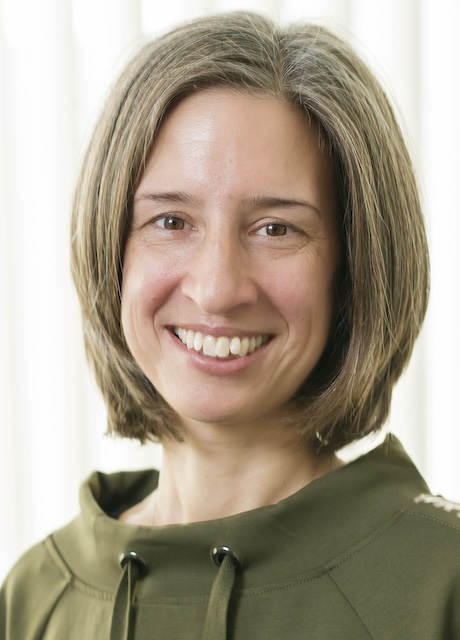 |
Stephanie Dornschneider-Elkink Principal Investigator Stephanie is an associate professor at the School of Politics and International Relations of University College Dublin. She holds a PhD in International Relations and Political Science from the Graduate Institute of International and Development Studies in Geneva (IHEID), an MA in International Relations and a Diploma in Middle East Studies from the American University in Cairo. She also holds a Magister Artium in American literature from Universitaet Hamburg with minors in Journalism and Philosophy, and completed undergraduate coursework (Grundstudium) in French Literature and Basic Law. See also her research interests. |
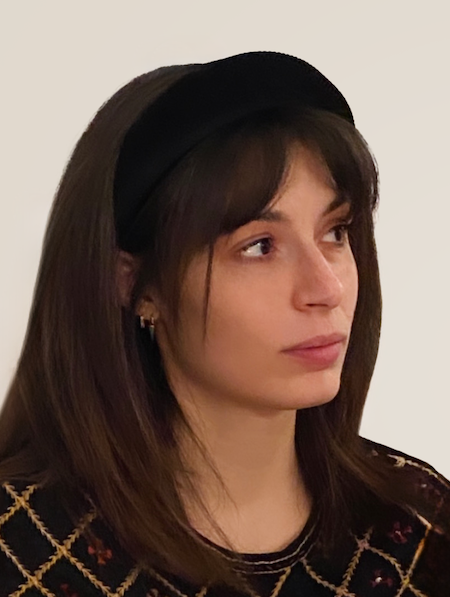 |
Sofia Quaglia PhD Researcher Sofia is a PhD researcher in the Quantitative and Computational Social Sciences program at the UCD School of Politics and International Relations and the UCD Connected_Politics Lab. She holds a Bachelor's degree in Philosophy and a Master's degree in Philosophical Sciences from the University of Milan, Italy, as well as a second Master's degree in Politics and Data Science from University College Dublin. Her research interests include computational ethics and the application of machine learning methods to investigate international conflict, with a particular focus on Muslim resistance movements. |
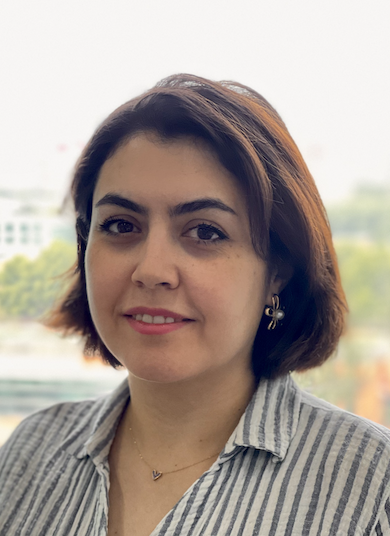 |
Mahsa Mahdinejad Postdoctoral Researcher Mahsa holds a PhD in Artificial Intelligence from the University of Limerick, Ireland. She earned her Bachelor's degree in Physics at Isfahan University of Technology, Iran. She has also worked as an Intern at the Department of Mathematics and Statistics, at the University of Limerick. Her research interests are Deep Learning, Evolutionary Algorithms & Grammatical Evolution, and Natural Language Processing. |
 |
Iqra Ali Research Assistant Iqra completed her Master’s degree in Information Science at the Nara Institute of Science and Technology (NAIST) in Japan, supported by the MEXT Fully Funded Scholarship. Her work includes the creation of the first Pashto paraphrase detection corpus, a comprehensive multilingual analysis of Vision-Language Models (VLMs), and research on detecting machine-generated text in low-resource contexts. Fluent in English, Urdu, Pashto, Hindi, Punjabi, and Bangla, Iqra leverages her linguistic skills to develop valuable resources for low-resource language communities. |
Transcribers team
A team of Arabic native speakers transcribed the collected ethnographic interviews in Arabic. Among others, the transcribers include:
 |
Joudy Sidi Bozan Transcriber (email) Joudy holds a BA in History and Culture of the Middle East from Freie Universität Berlin. She is currently pursuing her Master's degree in Arabic Studies at the same university. A native of Syria, Joudy moved to Germany at the age of 13 and quickly adapted to her new environment, mastering the German language and securing a recommendation for “Gymnasium” education. Fluent in Arabic, English, and German, Joudy leverages her linguistic skills in her role as a freelance translator and interpreter. |
 |
Izza Abu Haija Transcriber (email) Izza is a PhD researcher at Freie University and Sorbonne University. She specializes in Palestinian female poetry and is a recipient of the prestigious Einstein Grant. As a multilingual expert, she speaks Arabic as her mother tongue, is fluent in English and French, and has a strong command of German and Hebrew. Available for freelance opportunities, she offers services in language teaching, translation, and transcription. |
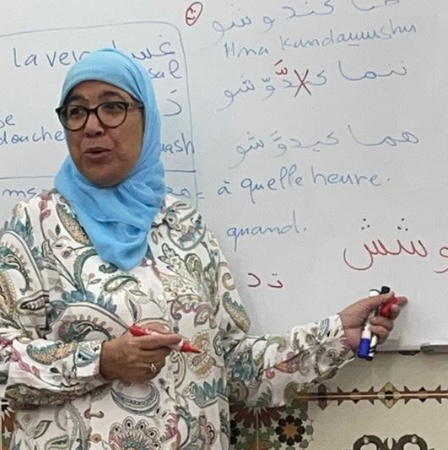 |
Jamila Blouh Transcriber (email) Jamila is a certified Arabic teacher, in both Moroccan dialect and Modern Standard Arabic. She has more than 30 years of experience teaching Arabic. She is well versed in both the study of contemporary and historic scripts. She has taught hundreds of students from all over the world to full fluency in Arabic. She has a Master's degree in Islamic Studies. She is happy to accept new students, who can contact her by email. |
 |
Mohamad Barakat Transcriber (email) Mohamad is from Syria. He holds a bachelor’s degree in Middle Eastern studies from the Free University of Berlin. His research interests focus on the history and contemporary politics of the Arab world today, as well as relations with Europe and immigration issues. Starting in the fall of 2024, he will be a master’s student in Contemporary Studies on the Arab World and Muslim Communities at Complutense University of Madrid. |
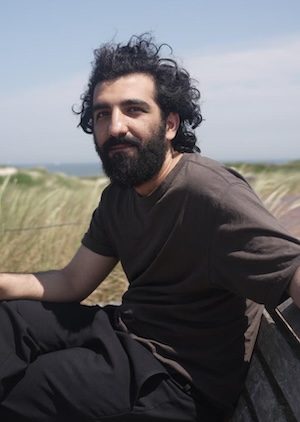 |
Zanoon Khalaf Transcriber (email) Zanoon is a student of philosophy at the Humboldt University of Berlin. He is interested in ancient Greek philosophy and the Arabic philosophy of the Middle Ages. His mother tongues are Arabic and Kurdish and he is fluent in German and English. He works as a freelance translator and interpreter for Arabic and German. |
 |
Fatima Saaed Transcriber (email) Fatima is a research assistant and doctoral student in the Department of History and Cultural Studies with a focus on Middle Eastern Studies/Islamic Studies/Arabic Studies/Quran Studies and Political Science at the Free University of Berlin. She specializes in the study of Arabic, Islamic theology, history, literature, philosophy, politics, religious studies and sociology. She also has experience in translation, teaching, research, transcription and text analysis. |
Former team members
 |
Amira Osman Former Research Assistant (email) Amira holds a PhD in Peace Studies from the University of Bradford. Amira has conducted research on international relations, social movements, diaspora communities, gender and forced migration, humanitarian intervention, conflict and disaster, and the use of evidence to inform policy-making. Her published articles focus on women in Arab civil society and on women's movements in the Sudan, beyond the pan-Africanist agenda. |
Related publications
[1] Dornschneider-Elkink, S., 2024. "Interview analysis meets cognitive mapping." Available at SSRN 4741960.
[2] Dornschneider-Elkink, S. and Henderson, N., 2024. Repression and dissent: How tit-for-tat leads to violent and nonviolent resistance. Journal of Conflict Resolution. 68(4), 756-785. [article] [replication materials]
[3] Dornschneider, S., 2019. High‐stakes decision‐making within complex social environments: A computational model of belief systems in the Arab Spring. Cognitive Science, 43(7), e12762. [article] [PDF] [data]
[4] Dornschneider, S. and Henderson, N., 2016. A computational model of cognitive maps: Analyzing violent and nonviolent activity in Egypt and Germany. Journal of Conflict Resolution, 60(2), 368-399. [article] [replication materials]
[5] Dornschneider, S. 2016, Whether to kill. The cognitive maps of violent and nonviolent individuals. University of Pennsylvania Press. [publisher] [data]
Forthcoming publications
[6] Dornschneider-Elkink, S., Quaglia, S., and Horton, L., "Positivity, trust and anger in resistance", article under review.
[7] Dornschneider-Elkink, S., "Everyday resistance under oppression", forthcoming book chapter in: Cavatorta, F., Baturo, A., and O'Malley, E. (eds.), Handbook of Political Opposition, Edward Elgar.
[8] Dornschneider-Elkink, S., "Reasoning processes, cognitive maps and subjectivity", forthcoming book chapter with Oxford University Press.